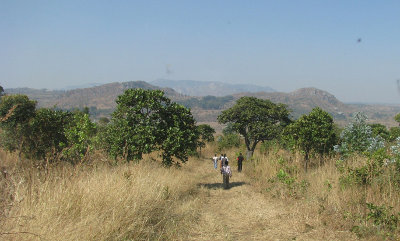Dedza, Malawi … “All too long aid to Africa has meant good intentioned people from first world nations delivering help to those who have little in the third world countries. This aid was often delivered with little thought as to how it could adversely affect the people who received it. Neither side seemed to fully understand how good intentions are not always enough, and how aid can sometimes be harmful. But today, people on both sides are beginning to understand the difference,” says Scott Gordon, President of the Malawi Project during a recent trip to Malawi. He was there for the ground breaking of a new hospital near Dedza, and the construction of a new maize mill to serve remote villages in the area. “When people work to support themselves there is a much greater reward, and feeling of ownership with what is being undertaken,” Gordon continues. “This is one of the reason the Project is pleased with its partnership with the Dzidalire Community Development Agency. They see the need for people to pull themselves up from poverty. They get it in a way a lot of others need to learn.”
Gordon is referring to the theme for the Dzidalire group that focuses on helping people learn to care for themselves independent of long term outside aid. The mission statement for Dzidalire, a not-for-profit, non governmental agency, states, “To empower and help people and their communities to become self reliant by teaching and enhancing skills that can be owned by the people and have their lives changed to maximize self potential and reliance.”

Both Gordon and Stephens agree the Dzidalire-Malawi Project relationship promises to be an excellent match for the goals of both organizations to help people learn to fish, and not simply to give them the fish. Self-reliance is a keyword with both groups and both are working to bring villages and communities in Malawi into successful programs that achieve these goals.
